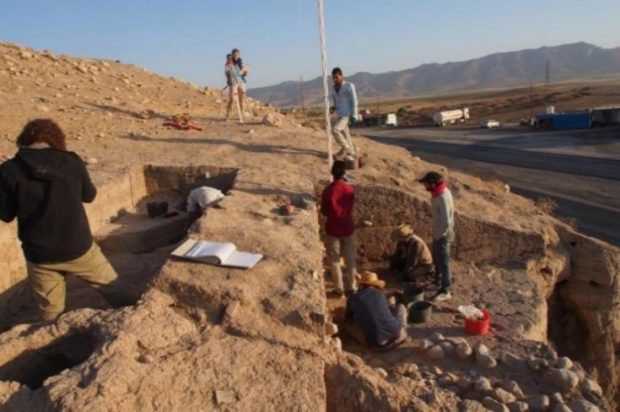Archaeologists unearthed Bronze Age settlement remains in Iraq

Sci-News – An international team of archaeologists has uncovered the remains of a large Bronze Age settlement not far from the town of Dohuk in northern Iraq.
The settlement was established in about 3000 BC, and was able to flourish for more than 1,200 years, according to the team, led by Prof. Peter Pfälzner from the University of Tübingen and Dr. Hasan Qasim from the Directorate of Antiquities in Dohuk.
The site is now home to the small Kurdish village of Bassetki in the Autonomous Region of Kurdistan.
“Although the excavation site is only 28 miles (45 km) from territory controlled by the IS, it was possible to conduct the archaeological work without any disturbances,” the archaeologists noted.
“We lived in the city of Dohuk, which is only 37 miles (60 km) north of Mosul, during the excavation work.”
“The area around Bassetki is proving to be an unexpectedly rich cultural region, which was located at the crossroads of communication ways between the Mesopotamian, Syrian and Anatolian cultures during the Bronze Age,” Prof. Pfälzner added.
“We’re therefore planning to establish a long-term archaeological research project in the region in conjunction with our Kurdish colleagues.”
Prof. Pfälzner, Dr. Qasim and their colleagues also discovered layers dating from the Akkadian Empire period (2340-2200 BC), which is regarded as the first world empire in human history.
They suggest that the ancient city may have been an important Akkadian outpost.
The significance of the settlement can be seen from the finds discovered during the excavation work.
The settlement already had a wall running around the upper part of the town from about 2700 BC onwards in order to protect its residents from invaders. Large stone structures were erected there in about 1800 BC.
The archaeologists also found fragments of Assyrian cuneiform tablets dating from about 1300 BC, which suggested the existence of a temple dedicated to the Mesopotamian weather god Adad on this site.
There was a lower town about 3,300 feet (1 km) long outside the center of the settlement.
Using geomagnetic resistance measurements, the archaeologists discovered indications of an extensive road network, various residential districts, grand houses and a kind of palatial building dating from the Bronze Age.
The settlement was connected to the neighboring regions of Mesopotamia and Anatolia via an overland roadway dating from about 1800 BC.
How to submit an Op-Ed: Libyan Express accepts opinion articles on a wide range of topics. Submissions may be sent to oped@libyanexpress.com. Please include ‘Op-Ed’ in the subject line.
- Libya’s HCS invites applicants for key state roles - December 31, 2023
- UK calls on Iran to prevent escalation in Israel-Hamas conflict - November 05, 2023
- Libyan Interior Minister: Immigrant shelter costs a fortune - November 05, 2023


